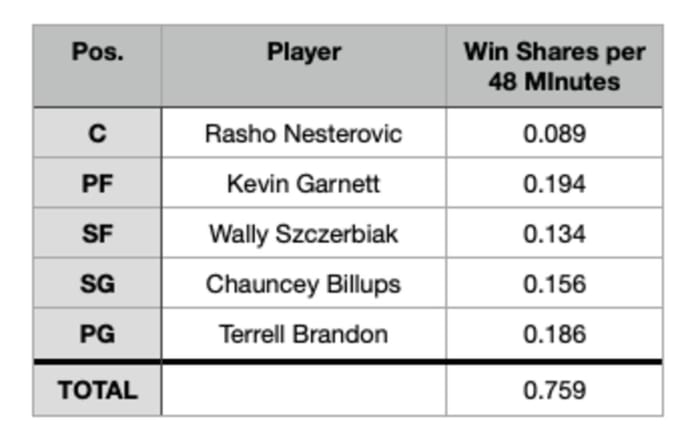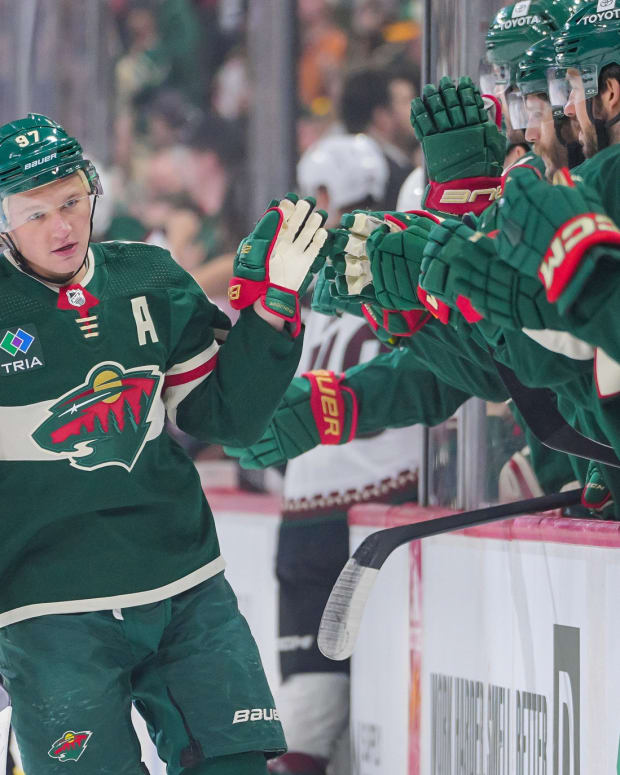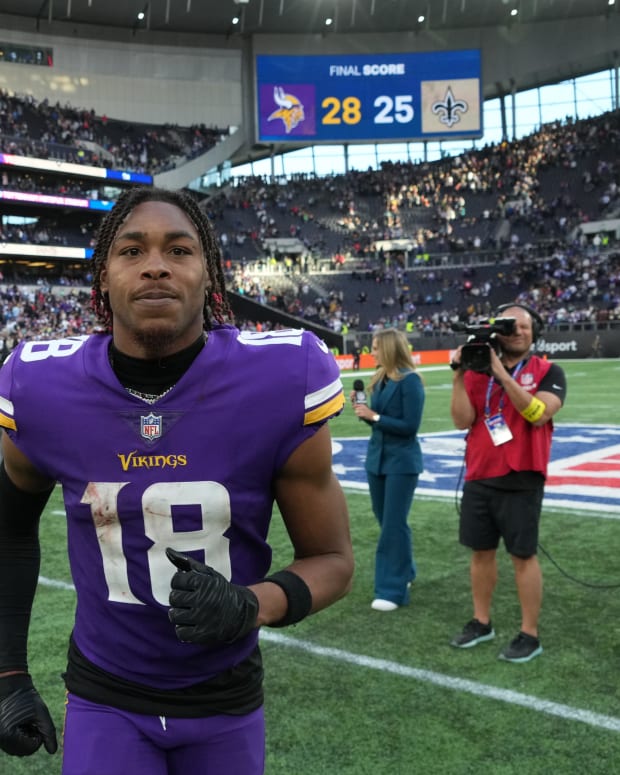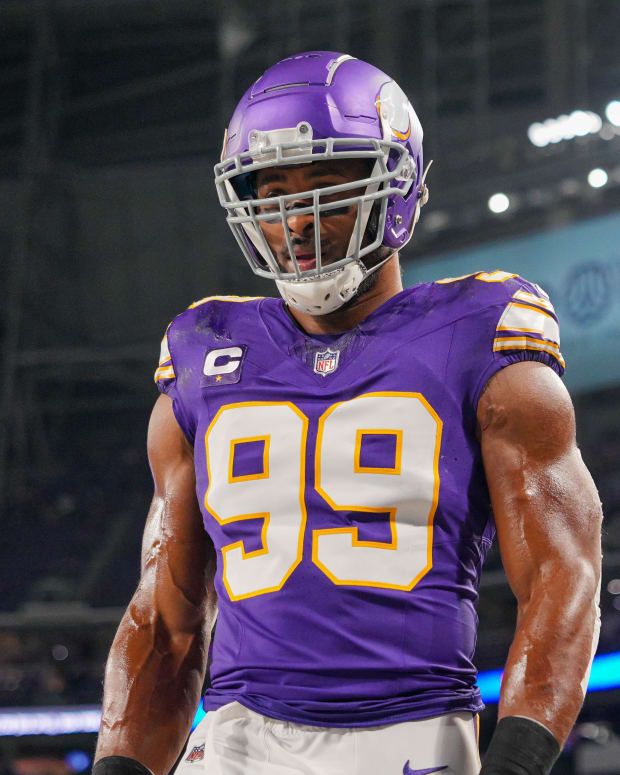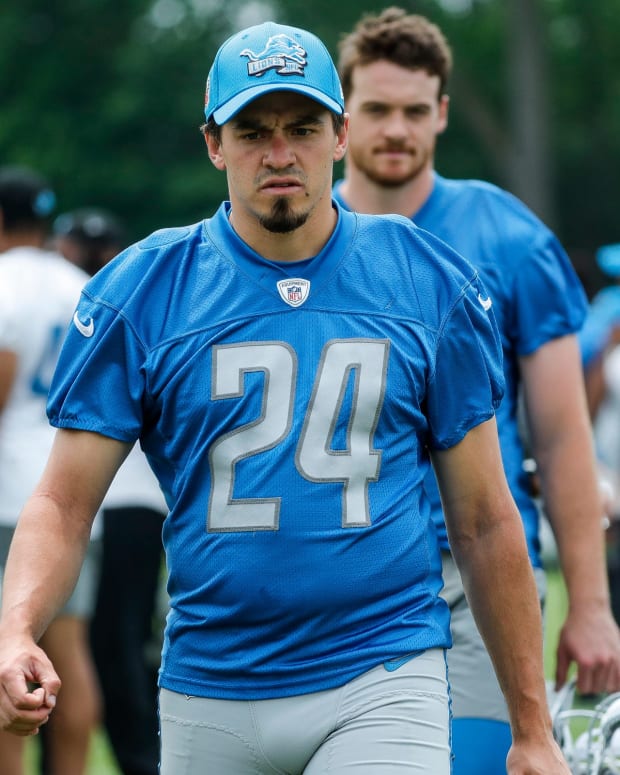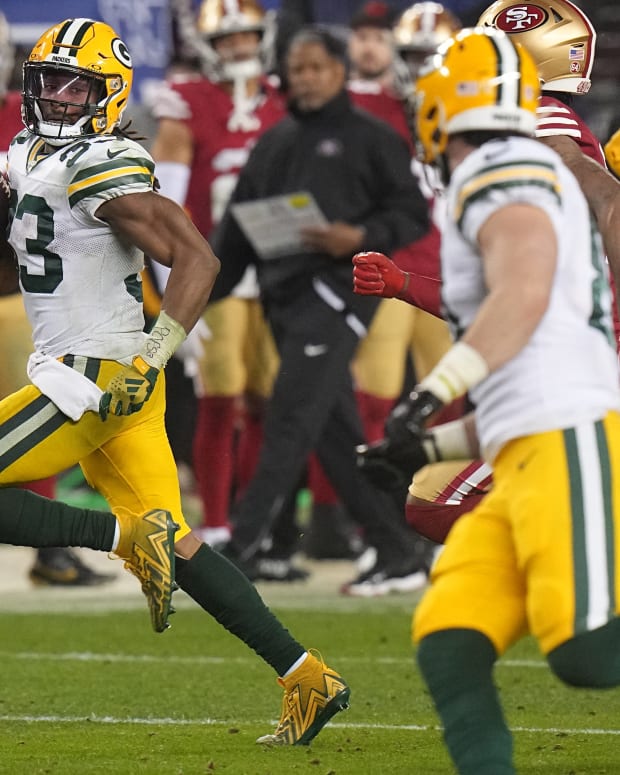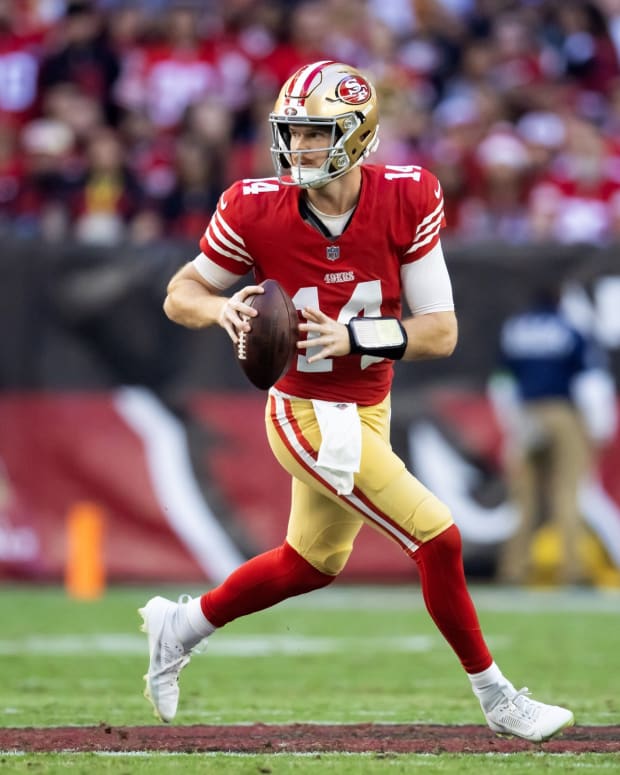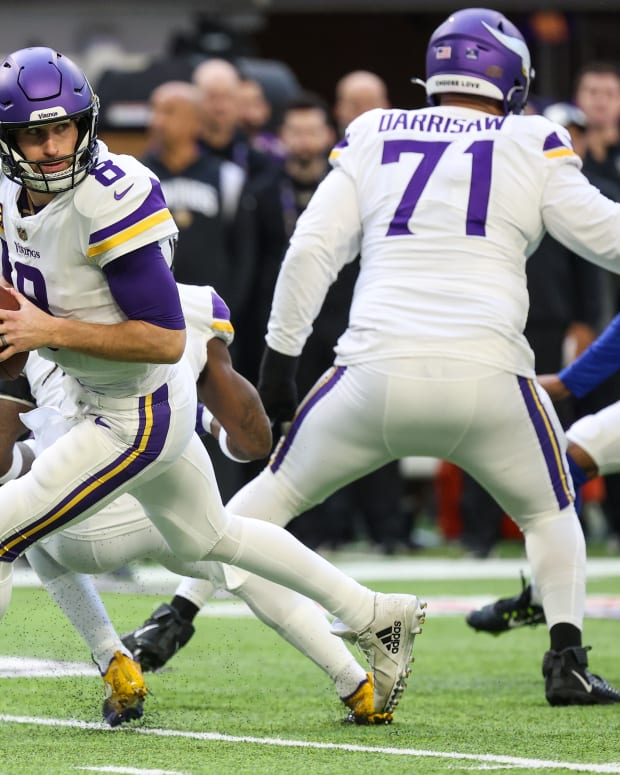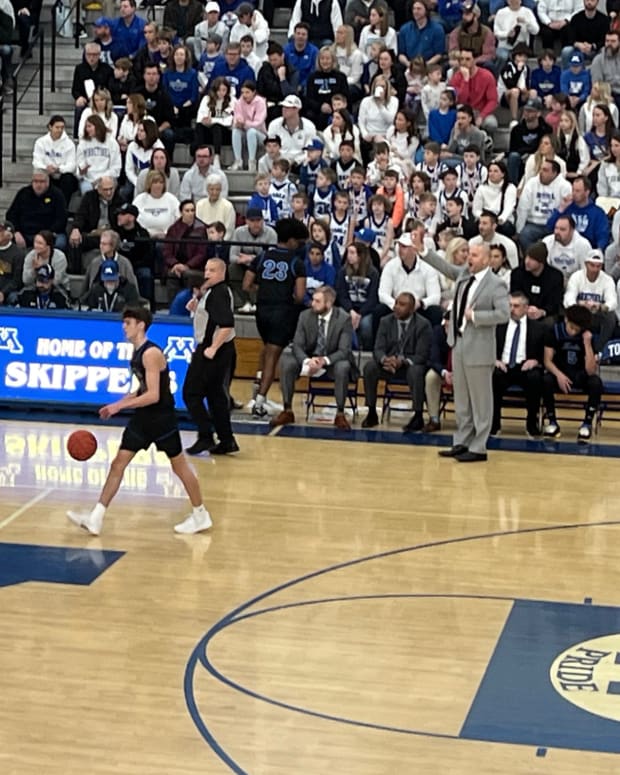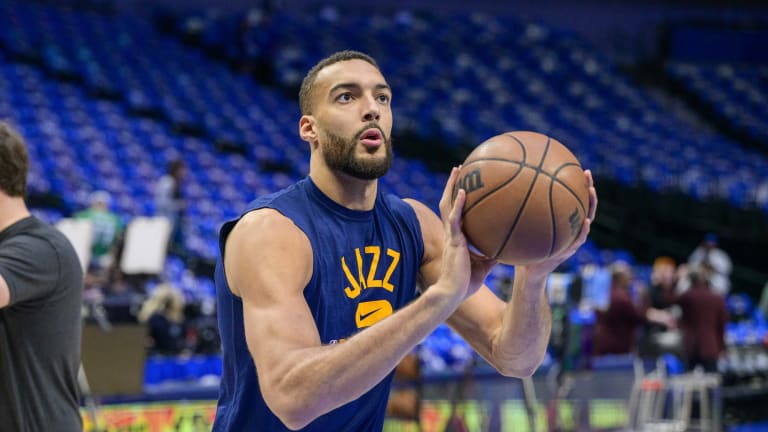
Can next season's Timberwolves have the best starting five in franchise history?

After trading for Rudy Gobert, the Minnesota Timberwolves are now arguably in the conversation for having the strongest starting five in the Western Conference.
Gobert should slide next to Karl-Anthony Towns to form one of the most dominant frontcourts in the NBA. If Anthony Edwards and Jaden McDaniels can take a step forward and D'Angelo Russell can play like he did last year, the Timberwolves should have no problem becoming one of the best starting fives in franchise history.
That task is more difficult than you think. Using Bill James' win shares metric, the Timberwolves have had some talented lineups during their existence and there will need to be some improvement for next year's group to reach that goal.
5. 2021-22
The Timberwolves' success was not a fluke last season. They finished with a record of 46-36 and made their second playoff appearance in the past 18 seasons. Instead of focusing on their first-round loss to the Memphis Grizzlies, it's interesting to see how Gobert makes this unit better.
After years of being miscast at center, Towns will slide to power forward to make room for Gobert, whose .264 win shares per 48 minutes ranked third behind only Nikola Jokic (.296) and Giannis Antetoukounmpo (.281) last season.
If Russell, Edwards and McDaniels maintain their win share rate from last year, this year's lineup would have .713 win shares per 48 minutes – the third-highest rate in franchise history. And with Edwards looking every bit a megastar and McDaniels getting better by the game, there's every possibility they will both improve on their 21-22 win share rates next season.
4. 2017-18
Tom Thibodeau's quest to land Jimmy Butler ultimately set the franchise back, but for one season it paid off as one of the greatest lineups in franchise history.
Towns put together one of his best seasons, with 21.3 points and 12.3 rebounds per game to make his first All-NBA team. Butler also enjoyed his coming out party as a legitimate superstar, averaging a then-career-high 22.3 points per game.
The Timberwolves could have used more from Andrew Wiggins, but it didn't stop them from being toward the top of the Northwest Division for most of the season. Even with the off-the-court issues, Minnesota earned its highest win total (47) and first playoff appearance since 2003-04.
3. 2003-04
It's surprising to see this team this low on the list. The 2003-04 team is the most beloved in franchise history and the only team to advance past the first round of the playoffs. If anything, there's a valid argument they could have won the NBA Championship if it weren't for Sam Cassell's "Big Balls" dance during the Western Conference Semifinals.
Alas, here we are. Kevin Garnett put together the highest win share rate in franchise history and won the MVP award, while Cassell had one of the best seasons of his career.
It's interesting to think what Wally Szczerbiak could have done if he wasn't dealing with a nagging foot injury, but Michael Olowokandi, Trenton Hassell and Latrell Sprewell were a formidable supporting cast. The Timberwolves went 58-24, won the Midwest Division title and advanced to the Western Conference Finals before being defeated by the Los Angeles Lakers.
2. 2013-14
It would be excusable if you forgot about this team, but according to win shares, it's one of the most effective groups in franchise history.
Much like the current Timberwolves are trying to do, this group had a dominant presence in the front court. Kevin Love was a sharp shooting forward and Nikola Pekovic was an offensive presence in the paint. Gobert is a superior defender, but this duo could be the blueprint for how the Timberwolves could look next season.
For this team, it meant being in the Western Conference playoff race until Ricky Rubio tore his ACL in a March game against the Lakers. Without Rubio on the floor, the Timberwolves finished 40-42 and got lost in the Western Conference playoff race, where the 49-33 Dallas Mavericks were the eighth seed.
1. 2001-02
The peak of the Kevin Garnett era was filled with a lackluster supporting cast, but this is one year where they got it right.
Garnett did his part, averaging 21.2 points and 12.1 rebounds, but Wally Szczerbiak came through by shooting just under 45% on 3-point attempts. Terrell Brandon was a steady influence at point guard and Chauncey Billups was beginning to transform into a Hall of Fame player to help the Timberwolves post a 50-32 record.
Although it was the third most wins in franchise history, their reward was the fifth seed in a loaded Western Conference. Dirk Nowitzki dominated a three-game sweep by the Dallas Mavericks, averaging 33.3 points and 15.7 rebounds as the Timberwolves were in the middle of seven straight first-round exits.




